Israeli Missiles Hit Targets Around Syria's Capital
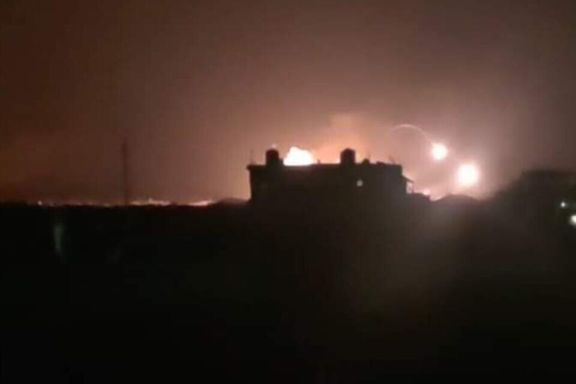
An Israeli missile attack targeting the vicinity of Syria's capital Damascus, where previous attacks targeted Iranian military centers.

An Israeli missile attack targeting the vicinity of Syria's capital Damascus, where previous attacks targeted Iranian military centers.
The attack killed four soldiers, wounded four and caused "some material damage", Syrian state media reported early on Monday citing a military source.
"At about 2:20 in the morning today, the Israeli enemy launched an aerial aggression from the direction of the occupied Syrian Golan Heights, targeting some points in the vicinity of the city of Damascus," the military source said.
Syrian air defences intercepted the Israeli missiles and shot down some of them, the source added.
The Israeli military declined to comment.
Israel has been carrying out air attacks since 2017 against what it has described as Iran-linked targets in Syria, where Iran's influence has grown since it began supporting President Bashar al-Assad in the civil war that started in 2011. Iran’s Revolutionary Guard have deployed thousands of troops and proxy militiamen for more than a decade.
The IRGC has also accumulated missiles and other weapons in Syria and set up production facilities. Israeli attacks often target warehouses and transportation routes of these weapons.
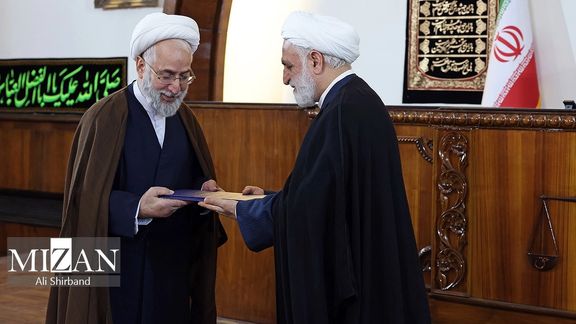
Iran's Chief Justice Gholamreza Mohseni-Ejei has appointed another cleric and a former court of appeals judge accused of human rights violations as prosecutor general.
The 62-year-old Qom-born Mohammad Movahedi-Azad, like most other Iranian judges, has seminary education and clerical background and his task is to enforce the country’s Sharia-based laws.
Movahedi-Azad’s predecessor, Mohammad-Jafar Montazeri who had held the post since April 2016, was sanctioned by the United States last December for his role in “overseeing the prosecution of protesters” during mass demonstrations last year. Britain also sanctioned Montazeri in January in reaction to the execution of Alireza Akbari, a former Iranian official, on charges of spying for Britain.
Montazeri has now been appointed as the head of the Supreme Court of Justice.

The newly appointed prosecutor-general began his career in the judiciary at the Tehran Province Prosecutor's office at the age of 24, right after the Islamic Republic was established in the early 1980s, and gradually rose to serve as the head of Branch 54 of Tehran Court of Appeal from 2009 to 2015. Since then, Movahedi-Azad has also served as special prosecutor for the clergy, head of the Tehran Revolutionary Court, and head of the Disciplinary Court for Judges.
During his tenure as an appeals judge, Movahedi-Azad was responsible for upholding the harsh sentences passed on many political prisoners convicted by Revolutionary Courts for their role in the 2009 protests that followed a disputed presidential election and other prisoners of conscience.
Movahedi-Azadi is responsible for re-imposing twenty-year prison sentences for seven former administrators of the Iranian Baha’i community in 2011.
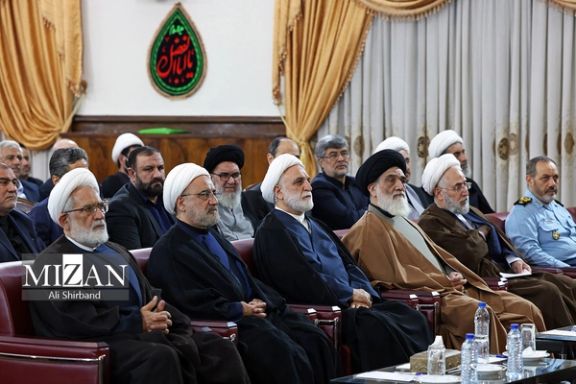
The seven Baha’i leaders were accused of espionage, propaganda against the regime and forming an illegal organization [to administer their community], without due process of law. Nevertheless, their sentences were reduced from 20 to 10 years by an appeals court, only for the authorities to reverse the decision.
Justice for Iran, a London-based human rights NGO, which defines its mission as holding perpetrators of serious human rights violations in Iran to account, in 2018 listed Movahedi-Azad as a human rights violator for the upholding the sentences passed on Baha’i citizens.
“Upholding heavy sentences for Baha’is, merely on account of their religious beliefs, and prison sentences for those who protested 2009 elections, lawyers and civil and political activists are some of the instances of Mohammad Movahedi-Azad’s human rights violations,” Justice for Iran said.
At the time, following the lead of Supreme Leader Ali Khamenei, Movahedi-Azadi labelled “protesters” as “rioters” and said the court of appeals had a “very impressive” role in ending the alleged riots.
Beside the Baha’i leaders, Movahedi-Azad upheld heavy sentences for other Baha’i citizens, such as Faran Hesami and her husband Kamran Rahimian, who had been put on trial just for teaching other Baha’is at the Baha’i Online University, because followers of the faith are not allowed to study in public or private Iranian universities.
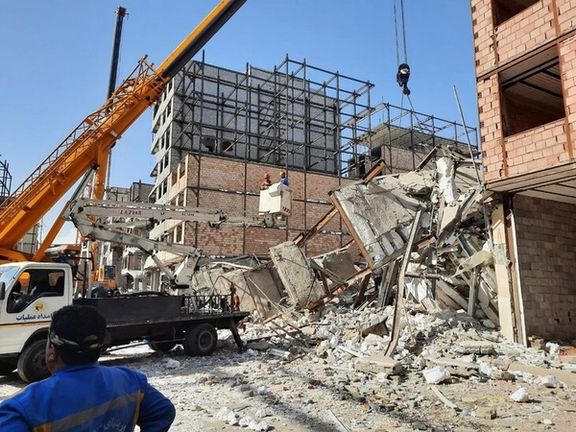
Five buildings that were under construction have collapsed in southern Tehran, killing at least three people and injuring more than 10 others.
Tehran's Firefighting Organization said Sunday that four police officers and two municipality employees as well as a few other people had been trapped under the rubble.
Three dead bodies, including Major Hossein Esmaili and Colonel Yazdan Soleimanabadi, have been recovered from the debris. The third victim, an elderly man, has not been identified yet while rescue operations are still underway at the site. At least two other people are still trapped.
The two police officers had been overseeing the legally-ordered demolition of a building, when five buildings nearby collapsed, and they were killed under the rubble.
There are at least hundreds of high-risk buildings in Tehran, but authorities refrain from officially announcing the list saying it "would worry the people". However, a list of 129 unsafe buildings was published by Ensaf News last year. IRNA state news agency reported last June that there are currently "33,000 unsafe buildings" in Tehran.
The Plasco Building was a 20-story high-rise that collapsed on January 19, 2017 after it caught fire. Twenty firefighters were reportedly killed and at least 70 others were injured by the collapse.
The problem is not limited to the capital. Last year in May, a 10-storey building in the southern city of Abadan collapsed, burying more than 80 people under the rubble, with 42 bodies recovered, an incident described by pundits as “a miniature symbol of the dynamics prevailing in Iran's government."
Soon after the collapse it became apparent that the owner and builder, Hossein Abdolbaghi, was a well-connected businessman who had disregarded regulations and building codes, backed by officials, who might have had their own financial interests.
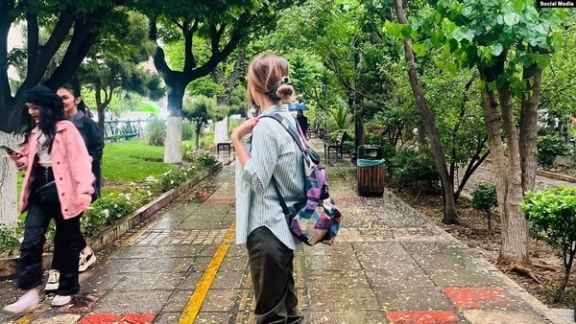
The municipality of Tehran plans to dispatch 400 of its personnel as hijab enforcers to subway stations of the capital.
Faraz Internet Daily reported on Sunday that the roles of these new hijab enforcers include warning women against removing the mandatory headscarves, preventing their entry without "proper" attire, and handing them over to law enforcement authorities if they disregard the rules.
The daily said these enforcers, who have been trained by Tehran Municipality Security Unit, will receive a monthly salary of 120 million rials (about $240), almost twice as much as the minimum wage in Iran.
According to the report, Tehran Municipality has earmarked a $100,000 monthly budget for hijab enforcement at subways stations.
The capital’s metro stations have been a hijab battleground since the municipality formed a special uniformed security unit to stop unveiled women from passing through the ticket gates earlier in the year.
The uprising that was sparked by the death in police custody of Mahsa Amini in September 2022 has made it increasingly difficult for the clerical regime to enforce the mandatory Islamic dress code. Since the beginning of the ‘Women, Life, Liberty’ movement, tens of thousands of girls and women have shed their compulsory hijab.
To avoid the public backlash over the violent enforcement of hijab laws, the Islamic Republic has recently begun implementing a wide range of measures from public humiliation tactics to using traffic cameras to identify women without hijab.
Moreover, heated debates over a new bill about how to deal with women who refuse to observe compulsory hijab continues inside and outside the Iranian parliament. The bill mainly relies on cash fines to force women to wear the hijab.
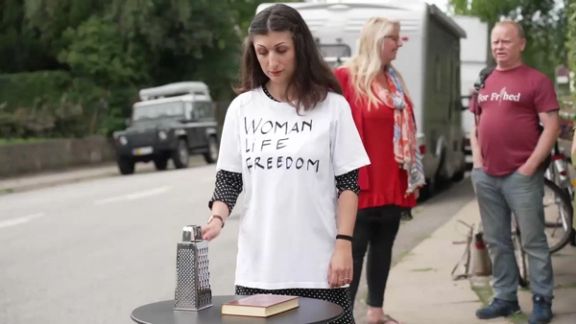
An Iranian born artist shredded a copy of Islam’s holy book, the Quran outside the Iranian embassy in the Danish capital Copenhagen on Saturday.
Firoozeh Bazrafkan, who has staged similar symbolic performances several times in the past, said the deliberate shredding of the Quran was a commentary on the Iranian regime’s hypocritical demand for respect for the holy book while it fails to show any respect for women’s rights.
She dedicated her performance to Iran’s women and men who continue to defy the oppressive regime, and extended her tribute to citizens and politicians worldwide who support the Iranian people’s quest for a dignified life.
Bazrafkan has staged several performances against the Islamic Republic and its religious ideology. The artist and blogger is known for including nudity, shredded Qurans, blasphemy and Nazi hymns in her works.
In an installation art piece dubbed "Blasphemy?” showcased in a gallery in 2014, she ran a copy of the Quran through a shredder and placed it on a prayer mat. Later in that year, she released a video, in which she stripped naked and put her clothes over the Quran, while another artist, Kasper Norby Lund, recited texts from the book.
In recent weeks, copies of the Quran have been burnt on several occasions in Sweden and Denmark. The Iranian government has strongly condemned the desecrations and officials have threatened the perpetrators with severe punishment.
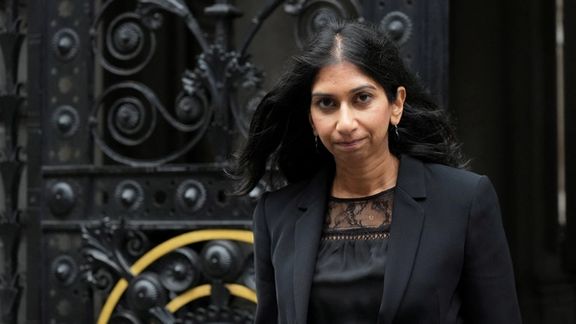
Britain's home secretary Suella Braverman says Iran's Revolutionary Guard poses the a serious risk to UK’s national security amid fresh evidence of its reach.
As pressure is growing on the British government to proscribe the IRGC, Home Secretary Braverman fears that the outfit is stepping up its activities, attempting to recruit members of organized crime gangs to target opponents of the regime.
The Sunday Times quoted a source close to the home secretary as saying that “The Iranian threat is the one that worries us the most.”
“It’s a big issue because they are getting much more aggressive, and their appetite is increasing. They are very defensive to anyone challenging their regime and just want to stamp it out,” the source said, underlining that “They are increasing their agitation.”
In February, Security Minister Tom Tugendhat told Parliament that the Iranian regime was behind 15 credible threats to kill or kidnap British citizens or people based in the UK in just over a year.
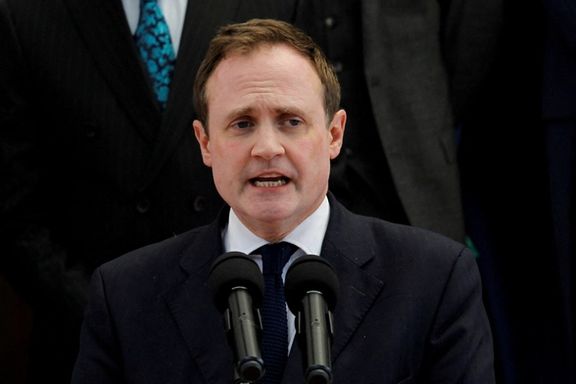
However, last month, the government again rejected calls to proscribe the IRGC as a terrorist group in favor of expanding the criteria by which its supporters and affiliated companies can be put under sanctions. The UK Foreign Office seems worried that designating the IRGC as a terrorist group could permanently harm diplomatic relations.
The new sanctions regime would allow ministers for the first time to sanction Iranian officials and individuals for their activities both Iran and in the UK, where they seem to have increased their sway.
The Home Secretary’s warning came just after Iran's IRGC commanders were revealed to be spreading extremist antisemitic propaganda in UK universities via a London student organization. The Sunday Times disclosed earlier in the week details of the close relationship between the Islamic Republic and the Islamic Students Association located in a former Methodist church in west London.
The association was set up to promote the religious and political philosophy of Ruhollah Khomeini, the founder and first Supreme Leader of the regime who ruled until his death in 1989.
The center hosts discussions with Iranian government officials and hardline clerics at Kanoon Towhid, an old church in Hammersmith that carries a portrait of Khomeini at its altar, as well as the Islamic Republic's flag.
According to an investigation by the Jewish Chronicle, since early 2020, at least eight IRGC leaders addressed British student audiences, trying to radicalize them. The speakers, some of whom are sanctioned by Britain for human rights abuses, have been involved in suppressing dissent within Iran.
Recordings obtained by media outlets exposed statements from commanders like Saeed Ghasemi, who claimed the Holocaust was "fake" and advocated for violence against Jews in “an apocalyptic war.”
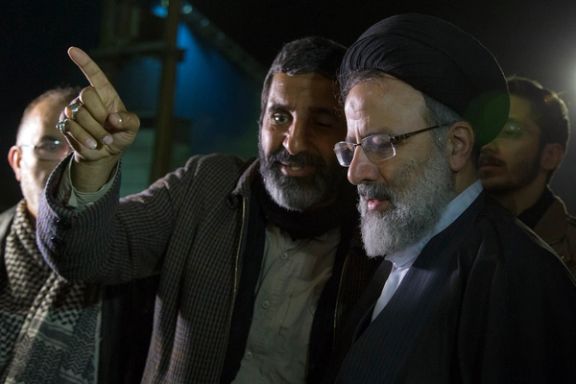
Another IRGC man who delivered lectures at the center was Hossein Yekta – a commander of IRGC’s plainclothes agent during crackdown on protesters – who claimed Jews "created homosexuality" and urged his audience to "raise the flag of the Islamic revolution, Islam, and martyrdom."
The association's internal elections are also observed by representatives of the Supreme Leader Ali Khamenei. In January this year, Mohammad Hossein Ataee Dolatabadi, a former chairman of the association and a master's degree student at the University of Bradford, made a trip to Tehran, where he met Khamenei. He later received a 'blessed' keffiyeh, which is a traditional Arabic headdress, as a gift, a token of his allegiance to Iran’s ruler.
Dolatabadi says he is no longer the chair of the organization since October 2022. Nonetheless, he remains the chair of its parent organization, the Union of Islamic Students Associations in Europe, according to Khamenei's official website.
The association's Telegram channel had reportedly made posts praising Qasem Soleimani, the former IRGC Quds Force commander who was killed in a US air strike in January 2020.
Alicia Kearns, the chair of the Foreign Affairs committee, condemned the organization's activities, stating, "To broadcast the jihadist and deeply antisemitic ideas of senior members of the IRGC to students across Britain is a brazen act of radicalization. We must pursue and prosecute those responsible for trying to incite violence here in the UK."